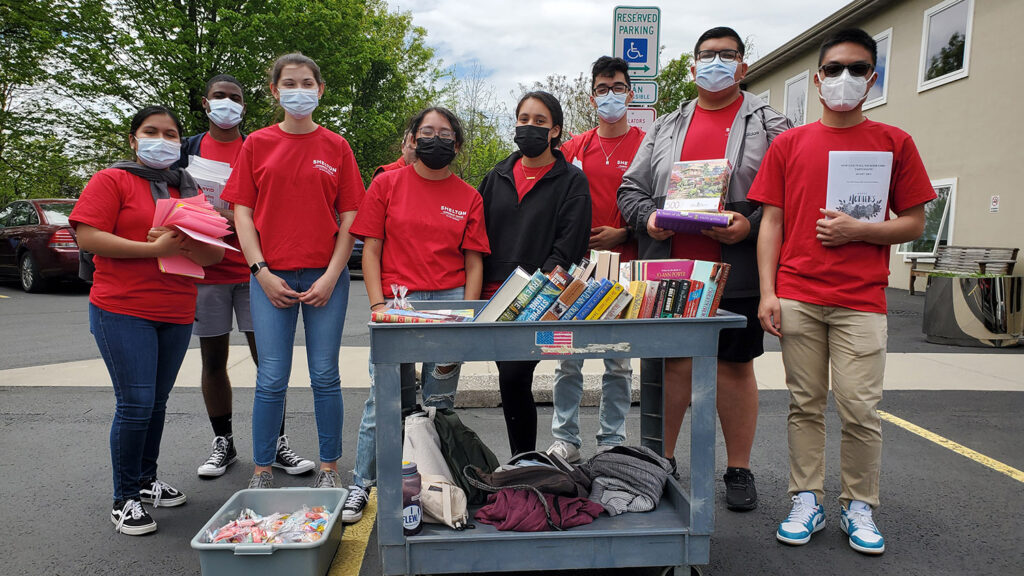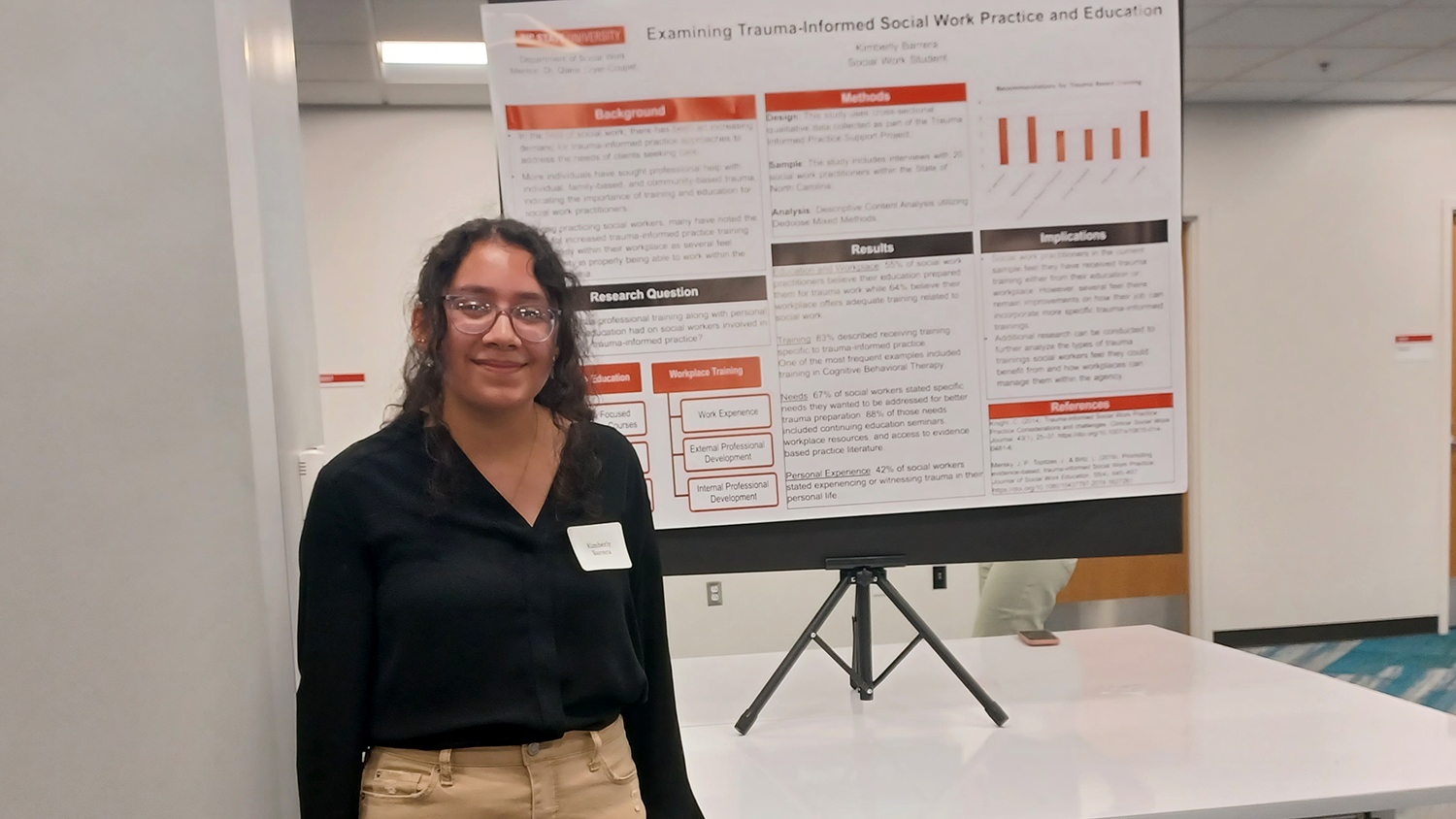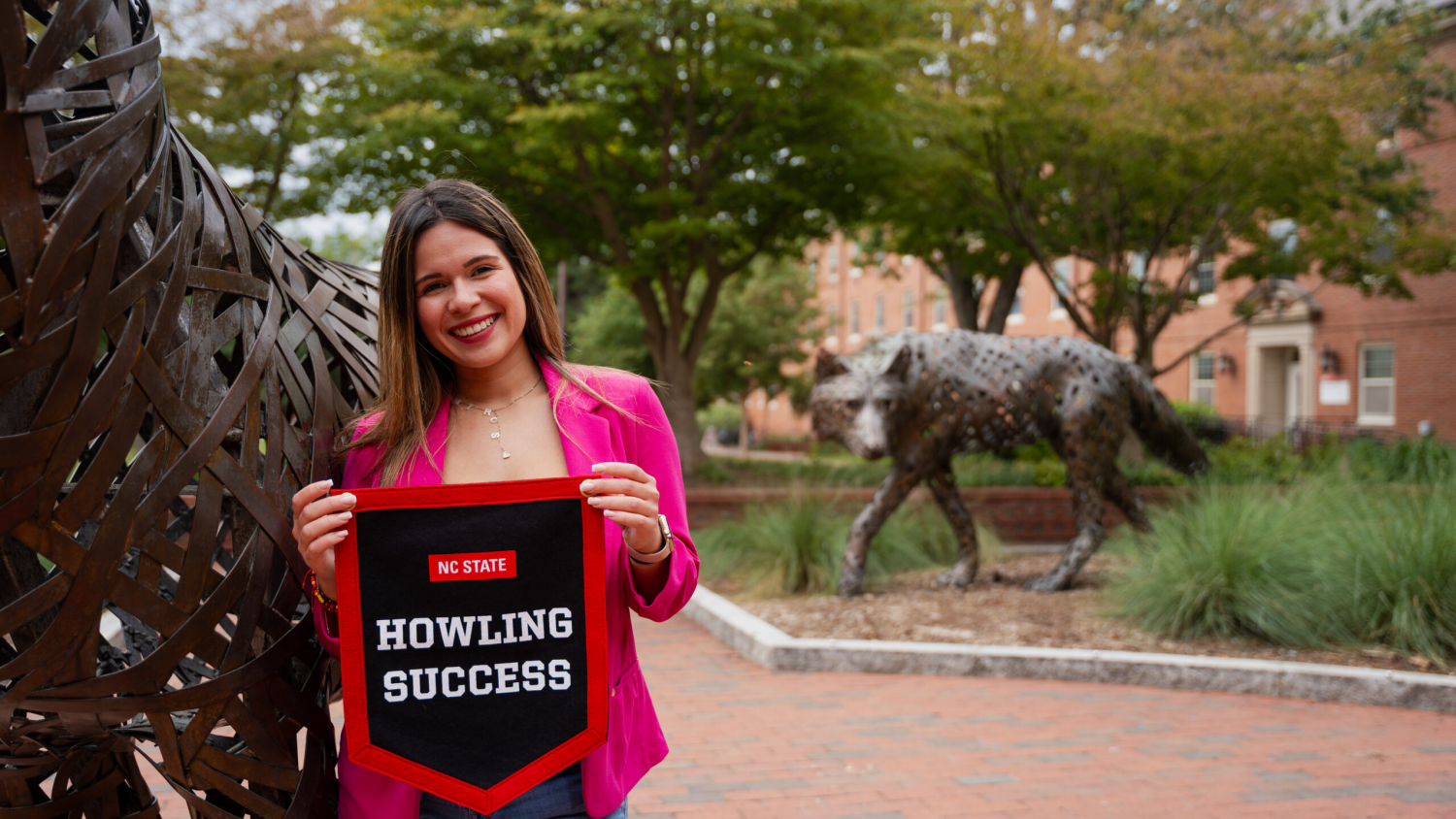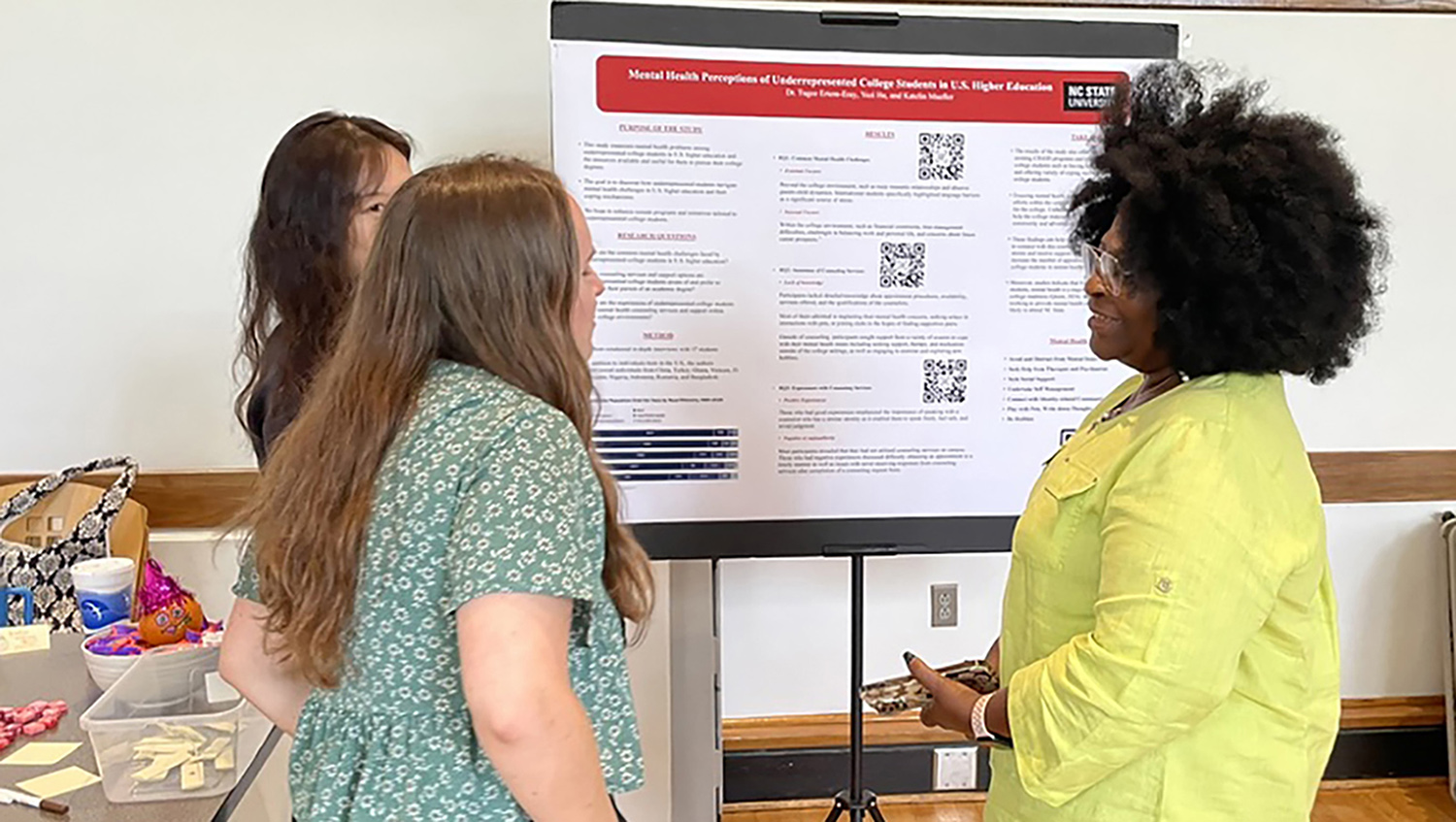Natural disasters, gun violence, racial strife and the pandemic.
All spotlight trauma’s effect on individuals. They also underline the importance of trauma-informed practices for social workers.
Social work major Kimberly Barrera-Gutierrez’s undergraduate research examines the impact that trauma-based training has on clinicians’ ability to help people deal with distressing situations.
Her initial findings indicate that social workers feel they are prepared to address issues related to trauma. However, they acknowledge that further education and training would be beneficial, particularly in the workplace.
Barrera-Gutierrez’s research concludes: Additional research can be conducted to analyze the types of trauma training social workers feel could be beneficial and how workplaces can manage them.
Barrera-Gutierrez, who worked under professor Qiana Cryer-Coupet, completed her research while interning for eight weeks at a childcare center in Salisbury, NC, this summer. The internship was through NC State’s Rural Works program.
In July, she presented her findings at the NC State Undergraduate Research and Creativity Symposium.
“An increasing number of people have sought professional help with individual, family-based and community-based trauma,” says Barrera-Gutierrez, a recipient this year of the Myatt-Peebles Scholarship. ”Since social workers are the number one providers of trauma care in the nation, the importance of this research is invaluable.”
We caught up with Barrera-Gutierrez, also a participant in the Chancellor’s Leadership Development program, to learn more about her honors thesis, NC State experience, career plans and more.
Why major in Social Work?
It is so broad; it allows me to help the most people.
What did you research?
I looked specifically at workplace training and social work education to gather content analysis, using qualitative interviews conducted by the WHOLE Dad Lab at NC State.
This included percentages in categories such as education and workplace, training, needs and personal experience. I also focused on common recommendations social workers stated they wanted in trauma-based training.
Additionally, I used data the Trauma Informed Practice Support Project collected from interviews with 20 social workers across North Carolina who provided care to families during the pandemic.

What were your responsibilities as an intern?
My primary responsibility was to serve as a teacher’s assistant, working with three-year-olds. My tasks included engaging with the kids, reading books to them and helping with meals.
What did you learn from your experiences?
From my research, I learned about trauma-informed care and practices, the types of training social workers receive in trauma and what they would like to have.
I also enjoyed learning about research — presenting at the research symposium taught me about sharing my research with others.
From my internship, I learned the value of doing something you love and the importance of building positive relationships with coworkers. I also learned what it’s like to work in a classroom, engage with kids and work with teachers to get things done.
“From my internship, I learned the value of doing something you love and the importance of building positive relationships with coworkers.”
How has your NC State education helped you fulfill these experiences?
The classes and professors in the School of Social Work have encouraged my continued passion for social work. I was also able to do research.
NC State has connected me to myriad opportunities and people who have guided me.
How have these experiences influenced your career?
Both helped me figure out what I want to do with social work. Initially, I wanted to do clinical work to be a therapist. Now, I realize I may also want to go into school social work.
The internship has also helped me decide which areas and where I would like to target in future internships.
What’s next?
I’m finishing my classes in the fall and doing my internship placement in the spring. I’m also applying to grad school for my master’s in social work.
- Categories:



